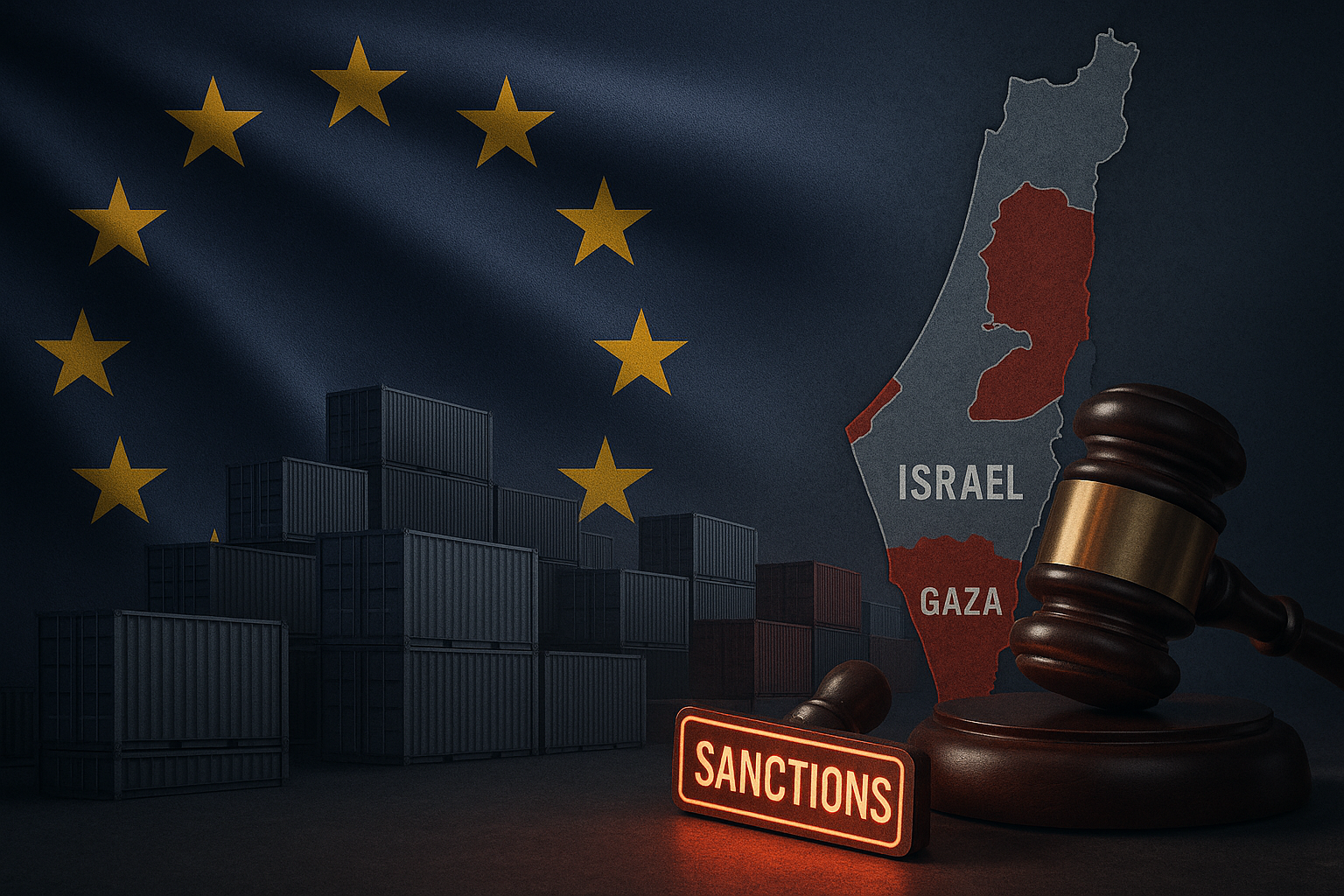European Commission President Ursula von der Leyen has called for sanctions and partial suspension of trade with Israel, citing humanitarian concerns over the ongoing war in Gaza. The proposal, if adopted, would mark one of the EU’s most significant actions against Israel in recent years, raising potential implications for diplomatic relations, trade flows, and global markets.
The move underscores the EU’s balancing act — asserting its human rights stance while navigating the complex geopolitical and economic dimensions of the Middle East conflict.
Core Development
The Commission President urged EU member states to consider:
Sanctions on Israeli Entities: Targeting specific firms and individuals linked to the Gaza offensive.
Partial Trade Suspension: Restricting preferential trade benefits under existing EU-Israel agreements.
Humanitarian Emphasis: Conditioning future engagement on de-escalation and humanitarian access in Gaza.
If enforced, these measures would signal a firm EU stance on accountability while potentially straining relations with one of its key regional partners.
Key Drivers Behind the Move
Humanitarian Concerns: Civilian casualties and humanitarian crisis in Gaza.
Geopolitical Pressure: Growing calls within the EU for stronger action against Israel.
EU’s Credibility: Reinforcing commitment to human rights and international law.
Stakeholder Impact
Israel: Possible restrictions on exports to the EU, a key trade partner.
EU Businesses: Companies tied to Israeli supply chains may face compliance challenges.
Global Markets: Potential ripple effects in energy, technology, and defense sectors.
Industry & Policy Reactions
Analysts say the proposal reflects mounting pressure within Europe to go beyond statements of concern and adopt concrete measures. However, divisions among EU member states could complicate implementation, as some governments prioritize strategic ties with Israel.
Challenges Ahead
Consensus Building: Sanctions require agreement across EU members, where views are split.
Economic Fallout: Restricting trade could impact EU industries dependent on Israeli technology and innovation.
Diplomatic Backlash: Likely strain in EU-Israel relations and potential tensions with allies like the U.S.
Strategic Outlook
If the proposal moves forward, it could mark a turning point in EU foreign policy toward Israel, setting a precedent for linking trade relations to humanitarian accountability. For global markets, the move would inject additional uncertainty into an already volatile geopolitical environment.
Why This Matters
The EU’s proposed sanctions highlight how geopolitics and economics are increasingly intertwined. The outcome will shape not just EU-Israel relations but also broader trade dynamics, investor sentiment, and regional stability.












